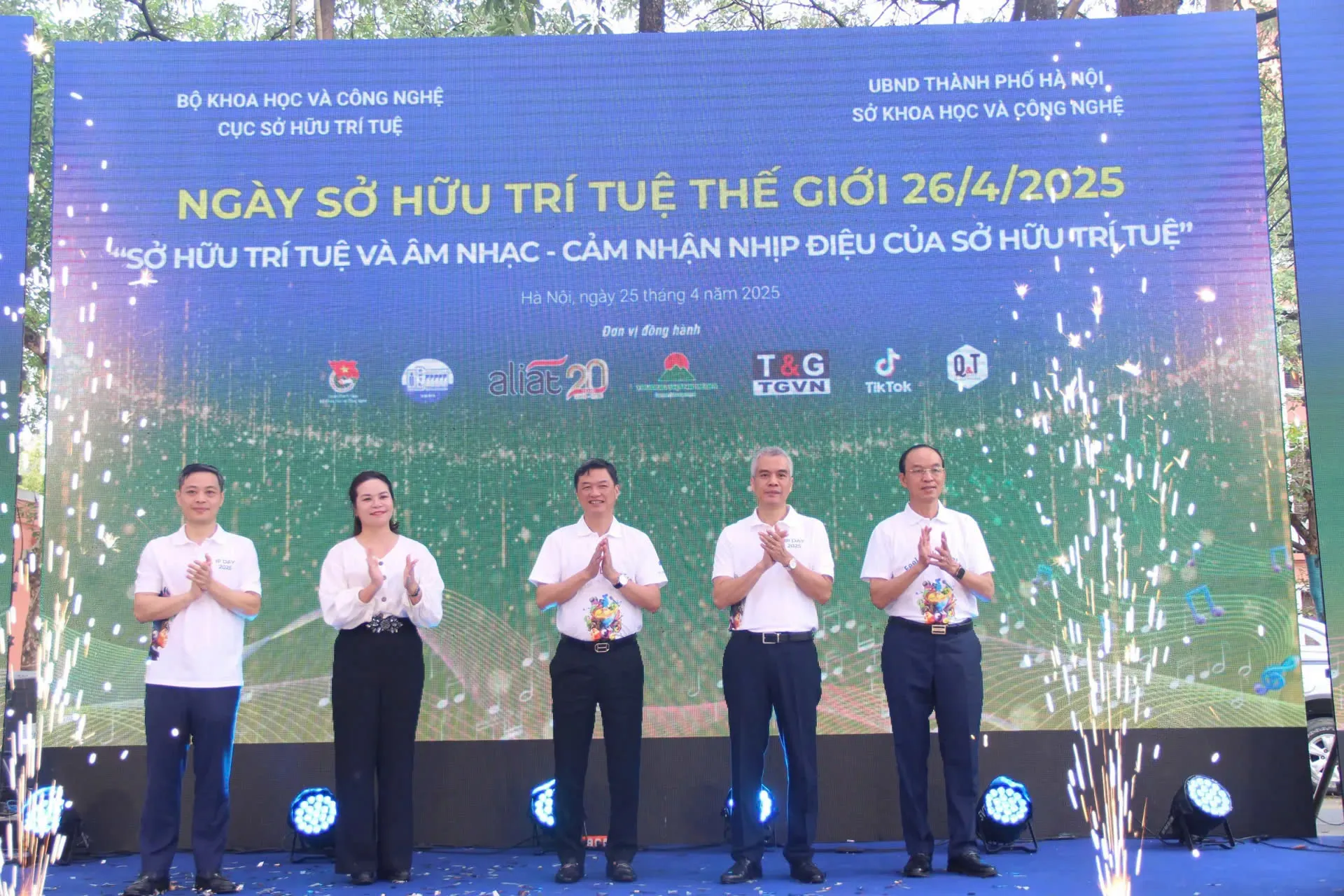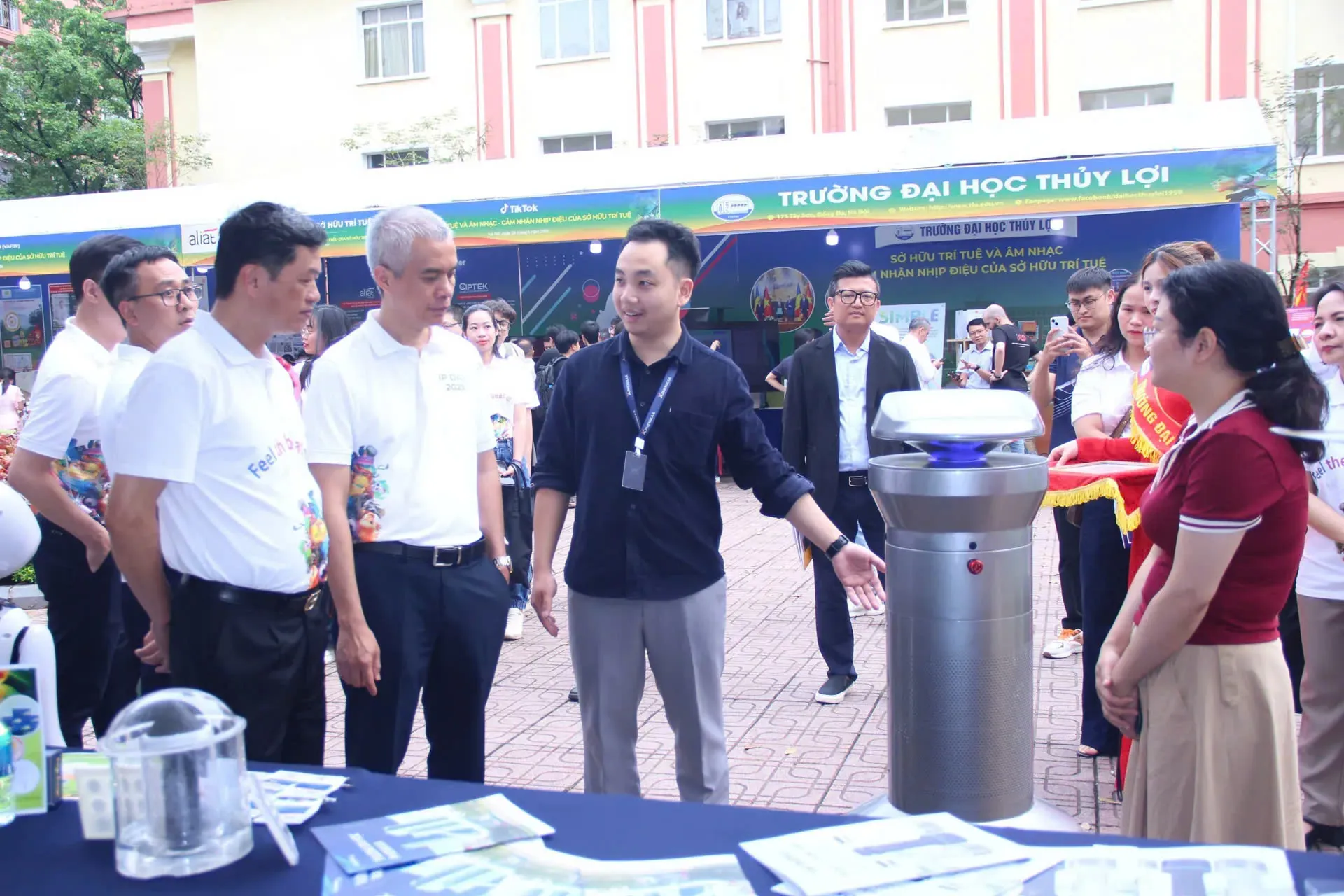Hanoi emerges as country's top intellectual property performer
The capital city leads Vietnam in intellectual property registration and innovation, with over 11,400 IP applications in 2024. The city continues to drive creativity and digital transformation, reinforcing its role in the country’s knowledge-based economic growth.
THE HANOI TIMES — Hanoi led the nation in intellectual property registration in 2024, with more than 11,400 applications and nearly 10,000 industrial property rights granted.
The city also topped localities in the Provincial Innovation Index (PII) rankings in 2022, 2023, and 2024, excelling in input and output innovation indicators, with 14 out of 52 component indicators placed first.
The figures were released by Nguyen Quoc Ha, Deputy Director of Hanoi's Department of Science and Technology, on the occasion of the World Intellectual Property Day (World IP Day) 2025 held in Hanoi this week.
Ha said intellectual property is not only a legal tool to protect creative assets, but also a driving force for innovation and the development of a knowledge-based economy amid further digital transformation.
Over the years, Hanoi has issued policies to support IP registration, effectively put into practice the Intellectual Property Asset Development Program to 2030 to strengthen IP protection, exploitation, and commercialization.
At the same time, the city has conducted support programs for IP registration of One Commune One Product (OCOP) goods, handicrafts, and scientific and technological innovations. To date, about 200 OCOP products have been protected, enhancing their brand value.
For further performances in this field, Nguyen Quoc Ha said Hanoi continues to build itself into a "creative city," focusing on the development of high-tech sectors such as artificial intelligence (AI), blockchain technology, green technology, and digital transformation.

Delegates kick off the celebration of World Intellectual Property Day (April 26). Photos: Kinh te & Do thi Newspaper
He said that among measures, raising public awareness of IP remains a key task by strengthening education in schools and broadening communication efforts to enable citizens, inventors, and artists to fully understand the value of intellectual property.
To make its measures effective, the city sees international cooperation as a strategic pillar, particularly in expanding partnerships with the World Intellectual Property Organization (WIPO) and other global partners to engage more deeply in the global IP value chain.
Additionally, Hanoi will continue to apply new legal policies, coordinate with the Ministry of Science and Technology to resolve legal bottlenecks, and implement support mechanisms under the Capital Law and the National IP Development Program.
At the celebration themed "IP and Music: Feel the Rhythm of Intellectual Property", relevant agencies sought to illustrate the important role of intellectual property in supporting creativity, innovation, and global integration.
Luu Hoang Long, Director General of the Intellectual Property Office of Vietnam, emphasized intellectual property's vital role in modern society, especially in music and art.
He said intellectual property not only stimulates creativity and economic growth, but also protects humanity's cultural heritage. He noted that "the rhythm of intellectual property lies in its ability to adapt and drive change."
He pointed out that in the digital age, where AI and technology are rapidly advancing, music products are increasingly vulnerable to unauthorized copying and exploitation, and an effective and flexible IP system is needed to protect the creative community.

Delegates visit the exhibition booths at the IP Day event.
In terms of strategic direction, Long said, "Under the leadership of the Ministry of Science and Technology, the Intellectual Property Office consistently views intellectual property as one of the most important pillars of the national innovation strategy.
The IP Office is working with ministries to organize programs that raise community awareness of intellectual property and help businesses and citizens understand their rights and obligations in protecting intellectual assets.
In the future, the office will expand IP education in schools and enterprises, and support the commercialization of intellectual assets to maximize the value of innovation.












